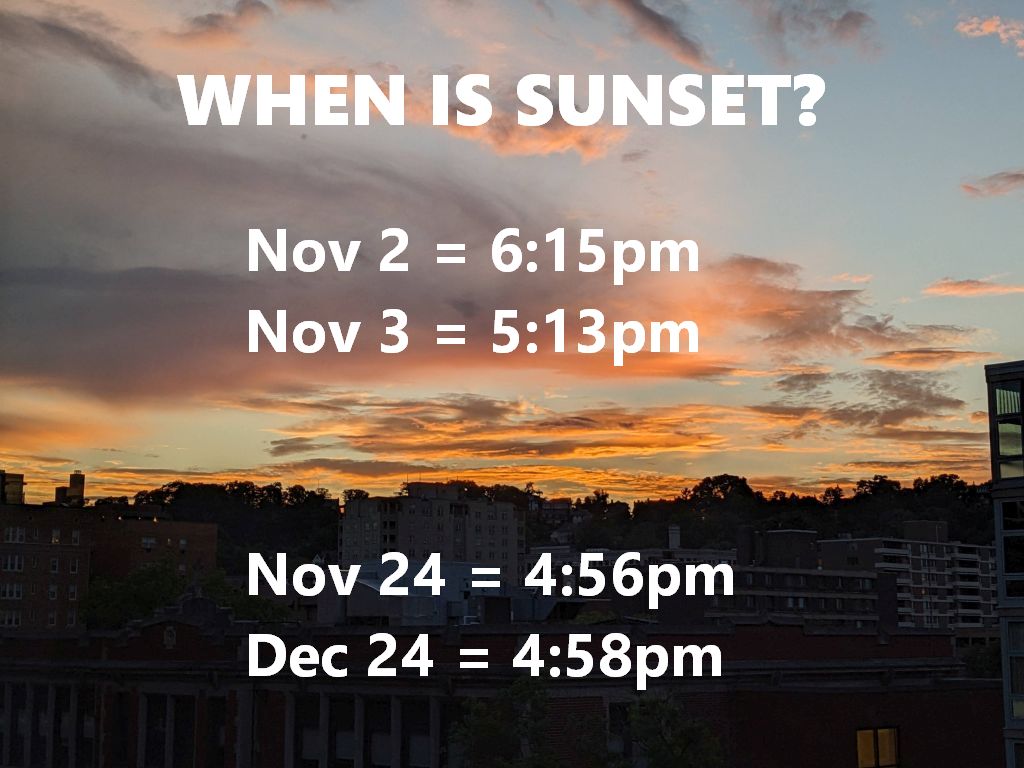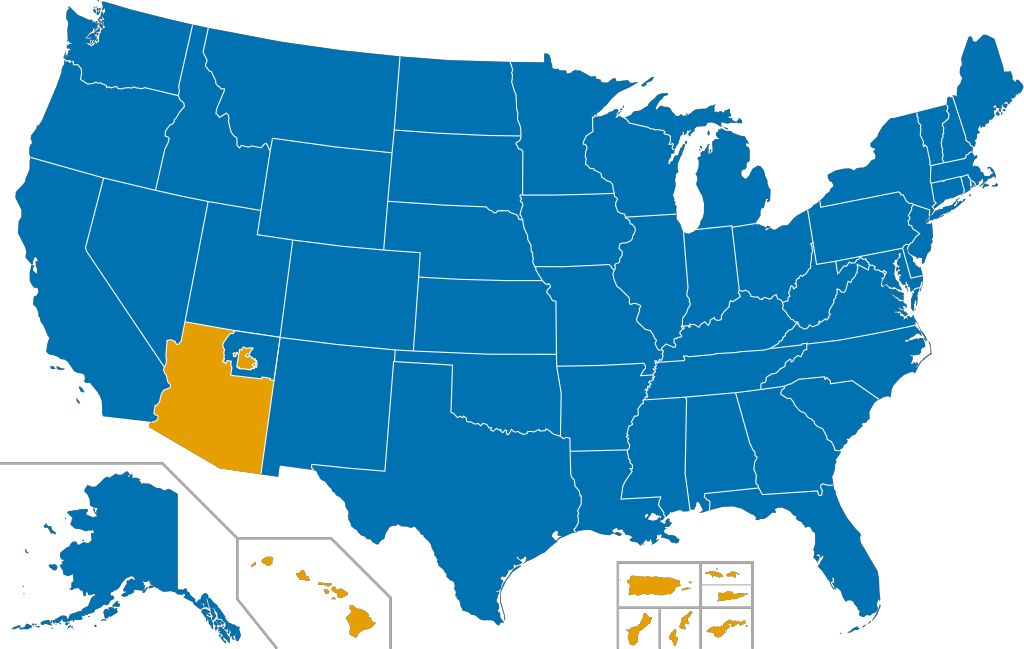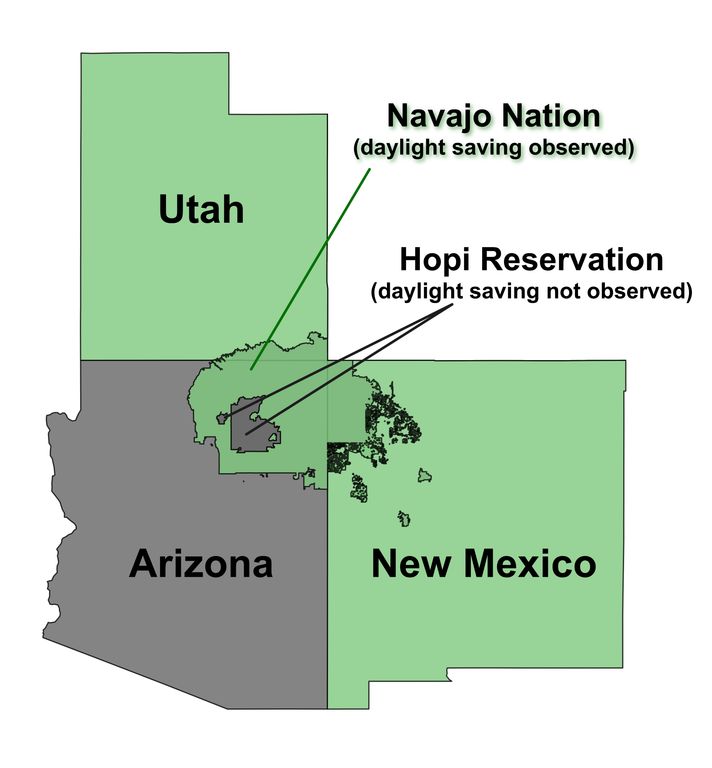
2 November 2024
Spring Forward, Fall Back. Daylight Saving Time ends tonight as our clocks turn back an hour. Tomorrow the sun will set an hour earlier. A lot of us will be grumpy. Some will be depressed.
Most Americans agree that changing the clocks is bad.
Numerous polls have found that most Americans believe that a standard time should be fixed and permanent—as many as 75% favor no longer changing clocks twice per year. One of the most common observations among researchers of varying backgrounds is that the change itself causes most of the negative effects, more so than either standard time or daylight saving time. Researchers have observed numerous ill effects of the annual transitions, including reduced worker productivity, increased heart attacks and strokes, increased medical errors, and increased traffic incidents.
— Wikipedia: SP Act Debate
There are places that don’t participate in this dreaded exercise: Arizona, Hawaii, Puerto Rico and other U.S. island territories.

But there is an area in northeastern Arizona of self-governed indigenous tribal land where part of it uses Daylight Saving Time (DST) and the center does not. The DST area is the Navajo Nation which spans three states and has chosen to use DST. The donut hole is the Hopi Reservation that uses Standard Time. Here’s a closer look.

If you drive from Tusayan, AZ to Tuba City to Ganado to Window Rock in March through October, you will change time zones seven times between Standard Time and DST. (Did I count correctly?) People who have to make that trip will be relieved that everyone is on Standard Time tomorrow.
Changing your clocks: Everything connected to the Internet — mobile phones, etc. — will change automatically at 2:00am Sunday. The rest of the clocks are up to us.
p.s. I wonder what happens to a cellphone on the trip from Tusayan to Window Rock during DST.
